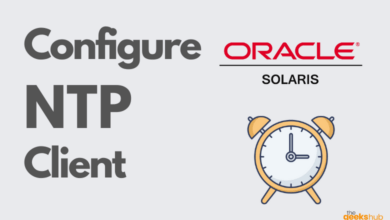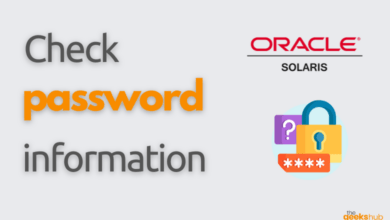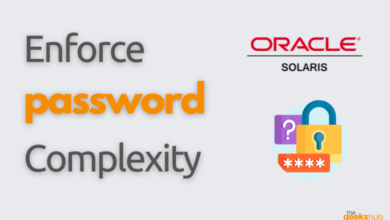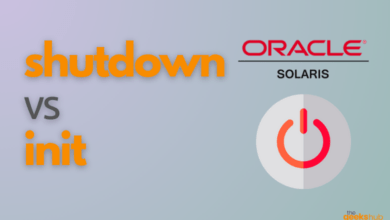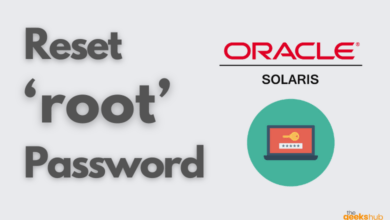Solaris 11.3

-

nohup Command with Examples
Ever started a long-running task in Linux only to have it abruptly terminated when you close your terminal window? That’s where the nohup command comes in. Short for “no hangup”, nohup ensures your commands and scripts continue execution even after you log out or your connection is interrupted. Understanding the…
Read More » -

How to configure NTP Client on Solaris 11
In this tutorial, we will learn how to configure NTP Client on Solaris 11 operating system. While time passes by, the computer’s internal clocks tend to drift which can lead to inconsistent time issues, especially on servers and client’s logs files or if you want to replicate servers’ resources or…
Read More » -

Displaying Password Information in Solaris OS
This tutorial focuses on using the passwd command to display password information in Solaris OS about all users or about one particular user. If your question is one of the following, then this tutorial is for you: Chage command in Solaris How to check password expiry in Solaris How to check password…
Read More » -

Managing Password Aging in Solaris OS
This tutorial focuses on using the passwd command to manage password aging in Solaris OS for any user. If your question is one of the following, then this tutorial is for you: Chage command in Solaris How to change password expiry in Solaris How to change password expiry in Solaris 11 Solaris…
Read More » -

How to enforce password complexity in Solaris
This tutorial focuses on how to enforce password complexity in Solaris OS. If your question is one of the following, then this tutorial is for you: Password Complexity in Solaris Enforce Password Policy in Solaris OS How to check password policy in Solaris 11 Solaris 11 password policy settings Specifying…
Read More » -

Oracle Solaris Run Levels Explained
In this tutorial, we will learn about Run Levels in Oracle Solaris operating system which are being used by System Administrators and defines what services and resources are available to users. What are Run Levels A system’s run level (also known as an init state) defines what services and resources are available to…
Read More » -

Disable Solaris Sendmail: unable to qualify my own domain name
In this tutorial, we will learn how to solve the most common error in /var/adm/messages “unable to qualify my own domain name (localhost) — using short name” in Solaris 11 operating system by disabling the sendmail service. If you want to solve this error without disabling the sendmail service check…
Read More » -

Sendmail: unable to qualify my own domain name (localhost) — using short name
In this tutorial, we will learn how to solve the most common error in /var/adm/messages “unable to qualify my own domain name (localhost) — using short name” in Solaris 11 operating system. If sendmail can’t find a hostname for itself that contains a dot (“.”), it will sleep for 60…
Read More » -

shutdown vs init command Solaris
In this tutorial, we will learn what is the difference between different system shutdown commands used in Oracle Solaris operating system which are being used by System Administrators. System Administrators perform many tasks in their routine work. Shutting down or rebooting the system is one of those tasks, and It…
Read More » -

How to reset root password in Solaris 11
In this tutorial, we will learn how to reset root password in Solaris 11 operating system which you may have forgotten. Steps Involved to reset root password: If you forget the root password and you cannot log into the system, you will have to do the following: Boot from the…
Read More »
- 1
- 2


